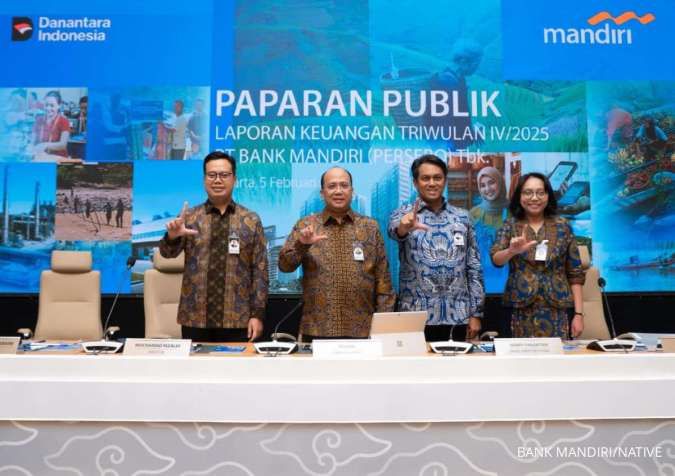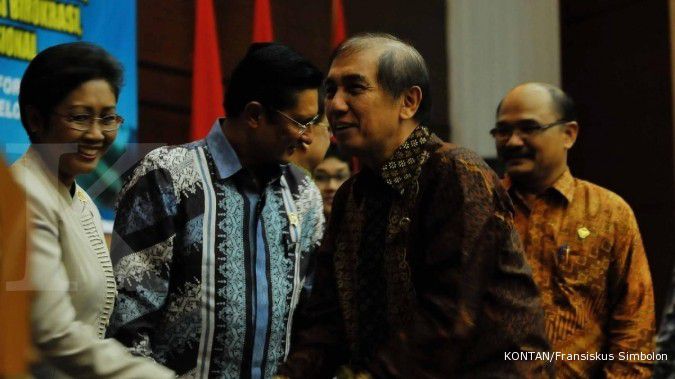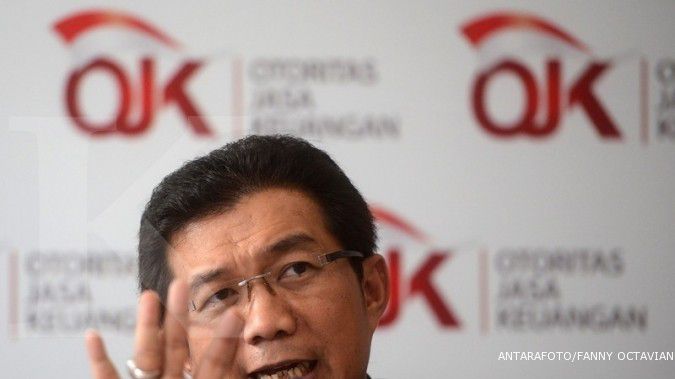JAKARTA. In the wake of recent graft scandals at the University of Indonesia (UI), academics and students are hoping the newly elected rector will have the integrity to manage the campus budget transparently. In May, the university elected Muhammad Anis to serve as its rector, replacing Gumilar Rusliwa Somantri, whose tenure had been rocked by many graft scandals. “Based on the lessons learned from the events at UI over the past three years, we can see that a university must not be led by people who focus more on retaining their position rather than improving the quality of the university,” UI lecturer and antigraft activist, Manneke Budiman, told The Jakarta Post on Monday at his office. He was referring to Gumilar. Manneke said that a university must be managed differently to a company, which would mainly focus on profit. He added that a university should focus more on building the capacity for research and scholarships, not on developing buildings, as was done by Gumilar. Gumilar was accused of overseeing a corrupt bureaucracy at UI and he failed to be reelected as rector after being summoned by the Corruption Eradication Commission (KPK) in connection with a number of graft allegations. Gumilar also came under fire for dismissing eight deans at the university, which many considered a move to secure his chance of reelection. Manneke said besides the abuse of power allegation, Gumilar oversaw a massive infrastructure project at the country’s most prestigious university. He gave the go-ahead for the construction of 38 buildings, including the Information Technology Center, a golfing range and an apartment on land belonging to UI without having permission from the university’s board of trustees. “We don’t know where he got the money and never told the public about it,” he said. “Having learned from these experiences, we hope the new rector will be more transparent with the public in handling the finances.” Ade Armando, a member of UI’s political science department and the university anticorruption movement, said the exposure of graft cases at the university was part of a movement initiated by officials within the institution. Ade said he and other members of that group provided information on a number of graft allegations related to building projects at the university to the KPK. “We reported our investigations and data to the KPK, and the KPK named the deputy rector of human resources and general administration service unit, Tafsir Nurchamid, as a suspect in a graft case related to UI library’s IT center and the conversion of a dormitory into an apartment complex,” he said. Ade said the revelation was just the beginning. ”There will be more names coming up. This is only the beginning of the KPK’s investigation,” Ade said. For his move, Ade has been accused of defamation. University of Indonesia student director Kamarudin filed a police report recently against Ade, accusing him of libel. The newly elected rector, Anis, said he would assist the KPK in its graft investigation. “We are obeying the law and will accept any outcomes,” he said. Many UI students said they were dismayed by the graft exposure. Agustina Pringganti, a student from the art and culture department, said she was disappointed learning about the graft case. “Rectors, deans and lecturers are our role models in practicing a good and honesty. If the rector and some of his staff are corrupt, then what will the future of this university be?” she said. Another student, Fristian Hadinata, from the department of philosophy, said he still had high hopes for the officials of UI. “The corruption is only a matter of individual practice, and not something institutional. We can still maintain integrity on this campus for the future,” he said. “I hope that the newly elected rector will be more transparent in explaining the campus’ budget.” (tam/The Jakarta Post)
RI's top college in spotlight for corruption
JAKARTA. In the wake of recent graft scandals at the University of Indonesia (UI), academics and students are hoping the newly elected rector will have the integrity to manage the campus budget transparently. In May, the university elected Muhammad Anis to serve as its rector, replacing Gumilar Rusliwa Somantri, whose tenure had been rocked by many graft scandals. “Based on the lessons learned from the events at UI over the past three years, we can see that a university must not be led by people who focus more on retaining their position rather than improving the quality of the university,” UI lecturer and antigraft activist, Manneke Budiman, told The Jakarta Post on Monday at his office. He was referring to Gumilar. Manneke said that a university must be managed differently to a company, which would mainly focus on profit. He added that a university should focus more on building the capacity for research and scholarships, not on developing buildings, as was done by Gumilar. Gumilar was accused of overseeing a corrupt bureaucracy at UI and he failed to be reelected as rector after being summoned by the Corruption Eradication Commission (KPK) in connection with a number of graft allegations. Gumilar also came under fire for dismissing eight deans at the university, which many considered a move to secure his chance of reelection. Manneke said besides the abuse of power allegation, Gumilar oversaw a massive infrastructure project at the country’s most prestigious university. He gave the go-ahead for the construction of 38 buildings, including the Information Technology Center, a golfing range and an apartment on land belonging to UI without having permission from the university’s board of trustees. “We don’t know where he got the money and never told the public about it,” he said. “Having learned from these experiences, we hope the new rector will be more transparent with the public in handling the finances.” Ade Armando, a member of UI’s political science department and the university anticorruption movement, said the exposure of graft cases at the university was part of a movement initiated by officials within the institution. Ade said he and other members of that group provided information on a number of graft allegations related to building projects at the university to the KPK. “We reported our investigations and data to the KPK, and the KPK named the deputy rector of human resources and general administration service unit, Tafsir Nurchamid, as a suspect in a graft case related to UI library’s IT center and the conversion of a dormitory into an apartment complex,” he said. Ade said the revelation was just the beginning. ”There will be more names coming up. This is only the beginning of the KPK’s investigation,” Ade said. For his move, Ade has been accused of defamation. University of Indonesia student director Kamarudin filed a police report recently against Ade, accusing him of libel. The newly elected rector, Anis, said he would assist the KPK in its graft investigation. “We are obeying the law and will accept any outcomes,” he said. Many UI students said they were dismayed by the graft exposure. Agustina Pringganti, a student from the art and culture department, said she was disappointed learning about the graft case. “Rectors, deans and lecturers are our role models in practicing a good and honesty. If the rector and some of his staff are corrupt, then what will the future of this university be?” she said. Another student, Fristian Hadinata, from the department of philosophy, said he still had high hopes for the officials of UI. “The corruption is only a matter of individual practice, and not something institutional. We can still maintain integrity on this campus for the future,” he said. “I hope that the newly elected rector will be more transparent in explaining the campus’ budget.” (tam/The Jakarta Post)





